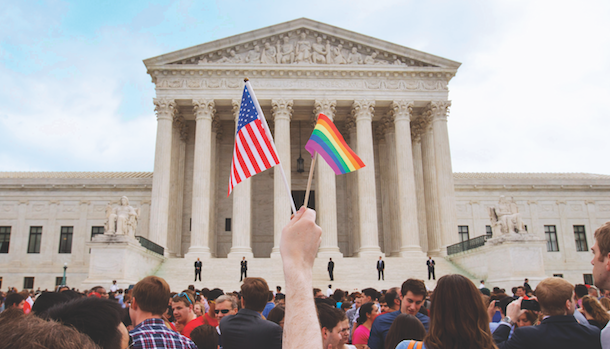Ill. Civil Unions Law Pits Religious, Gay Rights
CHICAGO – Two gay central Illinois men recently said, “We do,” to having a civil union ceremony, but two bed-and-breakfasts they approached about hosting their event responded, “We don’t.”
Todd and Mark Wathen’s fight against the establishments highlights what advocates say is a growing battle between religious freedoms and gay civil rights.
The Chicago Tribune reported that when the couple approached the Beall Mansion in Alton in southern Illinois earlier this year, they received an email response that the inn “will just be doing traditional weddings.” A similar message came from the owner of the Timber Creek Bed and Breakfast in Paxton in central Illinois, who said the inn would “never host same-sex civil unions.”
“We believe homosexuality is wrong and unnatural based on what the Bible says about it,” the email from Timber Creek’s owner said. “If that is discrimination, I guess we unfortunately discriminate.”
Steven Amjad, an attorney representing Timber Creek, said religious freedoms are guaranteed by the state constitution.
“These are business owners that have strong religious convictions. The Legislature has created this (conflict), and the courts will have to sort this out,” he said.
Illinois’ civil unions law went into effect in June. Disputes over religious exemptions have increased nationwide as states continue to extend legal partnership rights to gay couples, advocates said.
The Illinois law has led to a similar legal battle over adoptions after Catholic Charities refused to recognize civil unions and began referring unmarried couples to other agencies. Catholic Charities argued that it was exempt under a provision in the civil unions law that protects religious practices. Illinois canceled its contracts with Catholic Charities over the referral practice, and a judge sided with the state. Catholic Charities has said it plans to appeal that decision.
The Wathens filed a complaint with the Illinois Department of Human Rights, which found “substantial evidence” that a civil rights violation was committed. That ruling gives the couple 90 days to file a complaint with the state Human Rights Commission or sue in Circuit Court.
They told the Tribune their plan is to file civil lawsuits because they don’t want to face the same kind of experience.
“We just didn’t feel like we could sit back and let this happen,” Todd Wathen said.
The couple held their ceremony in the backyard of their home in Mattoon.
Andrew Koppelman, a professor of political science and law at Northwestern University, said at issue is whether the state’s Human Rights Act, which prohibits discrimination on the basis of sexual orientation, is trumped by the state’s Religious Freedom Restoration Act, which protects religious freedoms from intrusion from the government.
“The hotels seem pretty clearly in violation of the Human Rights Act,” Koppelman said. “And if you’re going to say that somebody is exempted from the human rights law under the Religious Freedom Restoration Act, that would mean that people could discriminate based on religious views. It’s a slippery slope.”
But another attorney for Timber Creek said cases like this one are crucial for “people of faith” who don’t believe the government should curtail their religious rights.
“We’re getting into a situation where government is telling people of faith, ‘You can’t live out your faith if it happens to disagree with this particular group,’ ” said Illinois attorney Jason Craddock, a member of the Alliance Defense Fund, a national Christian legal organization that opposes abortion and same-sex marriage.
Mark Wathen said the situation has taken him by surprise.
“I’m a white male in my early 40s and I’d never experienced discrimination in my life,” Mark Wathen said. “When I came up against this I was like: ‘Whoa. This is not the 1960s.’ “










